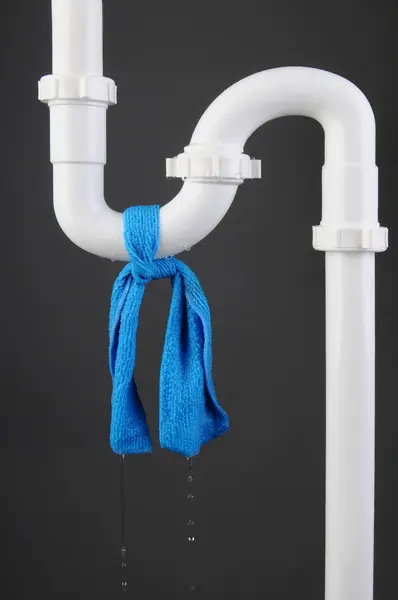We get it: around our parts, it doesn’t normally get as bitterly cold as it does in other parts of the country. Still, our nighttime temperatures can get pretty chilly, and all it takes is one night at 32°F or below for your plumbing pipes to freeze. Of course, this depends on how protected the pipes are and where exactly they’re located, but it’s important to be aware of this problem and what to do if it happens to you.
Without taking preventive measures, you could very well find yourself facing frozen pipes, and subsequently could face cracked or burst plumbing. Keep reading to learn more about the precautions you can take. If you do have any problems with your pipes as we progress into fall and winter quickly approaches, contact a professional Edgewood, NM plumber, such as a member of our staff.
Frozen Pipes Can Be Prevented
You’ll have to do your due diligence, but in most cases, frozen pipes can be prevented. The first thing you should do is open and drain your outdoor faucets. Naturally, the pipes connected to these faucets are going to be the most susceptible to freezing.
Be sure to turn off the water flow for any points that you turn on a faucet for sprinklers or hoses. One more step you might consider taking on top of this is purchasing insulated caps for your hose and faucet openings. Then, you should:
- Disconnect Hoses: You very likely have hoses that you use outside during the warmer days of the year, of which we have plenty! Before temperatures drop too low, you should disconnect and drain these hoses, and then store them inside.
- Insulate Your Pipes: There are a variety of pipes in your home that could be sensitive to freezing temperatures, but which you have to use during the winter. These are pipes connected to faucets that you can’t just shut off for the entire season, like bathroom sinks, or pipes in your basement or crawlspace. In order to protect these pipes, you can purchase pipe insulating sleeves to keep the temperature of the water in your pipes from dropping as low as the temperature outdoors. You might actually be able to achieve this with towels, if you’d like to try going that route.
- Keep Cabinets Open: This may seem like a strange tip, but hear us out! Plumbing fixtures that exist in your bathrooms or kitchen area are usually going to be under sinks, and/or run behind the walls that lead outdoors. This means that these pipes are susceptible to freezing. But if you leave your cabinets where these pipes are open, then the warmth from your heating system can reach them and make them less likely to freeze.
Dealing with Frozen Pipes
What if your pipes freeze anyway? Can you thaw them on your own? We typically advise against this, for safety reasons more than anything else. As the ice within pipes thaws, it causes the pipe itself to flex under pressure. As a result, the pipe could burst, injuring you and potentially even causing property damage. If you do find yourself with frozen pipes, despite taking the above-mentioned precautions, be sure to give our plumbers a call!
Roadrunner Air Conditioning, Heating & Refrigeration is the company to turn to for reliable plumbing services. Contact us today!








